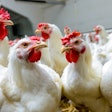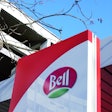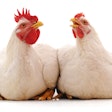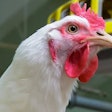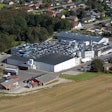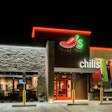• Net sales for January–September were EUR 1 332.7 (1 387.7) million and in the third quarter EUR 452.4 (465.9) million.
• EBIT for January–September was EUR -18.1 (5.5) million. Comparable EBIT was EUR -5.3 (7.2) million. The corresponding EBIT margin was -0.4 (0.5) per cent.
• EBIT for the third quarter was EUR -0.8 (8.1) million. Comparable EBIT was EUR 2.7 (8.1) million. The corresponding EBIT margin was 0.6 (1.7) per cent.
• Cash flow before debt service for January–September was EUR -38.4 (-5.3) million and in the third quarter EUR -12.0 (-5.4) million.
• Comparable profit before taxes for January–September was EUR -11.7 (0.4) million and in the third quarter EUR -0.1 (5.7) million.
• EPS for January–September was EUR -0.43 (-0.12) and in the third quarter EUR -0.07 (0.07).
• Net financial expenses for January–September were EUR -6.9 (-6.5) million and in the third quarter EUR -2.5 (-2.5) million.
• Net debt was EUR 193.4 (162.7) million and net gearing 51.4 (39.8) per cent.
• Outlook for 2017 (revised on 31 October 2017): HKScan estimates its comparable operating profit (EBIT) for 2017 to be at loss. The reasons for the revised outlook is the higher than anticipated ramp up cost of the new Rauma unit and also the temporary decreased delivery capability in poultry in Finland.
As of the beginning of 2017, the Group has amended its segment reporting. The net sales and EBIT for specific market areas no longer include intercompany sales and margins. Figures for the comparison period 2016 have been revised accordingly. The amendment has no effect on Group-level figures. The reported and restated market area figures for 2016 are given in the notes to the consolidated interim report in this bulletin.
Jari Latvanen, HKScan's president and CEO, comments on the third quarter of 2017:
“The third quarter result was a clear disappointment. HKScan is in the middle of a turnaround process. The Rauma poultry unit ramp up phase has been more challenging than anticipated. Our result was burdened by the ramp-up costs of the unit. The cost amounted to some EUR 2 million. We also faced temporary weakening in our poultry delivery capability. We estimate the ramp-up to have an impact on our fourth quarter performance too. All in all, the Rauma unit will substantially improve our efficiency and competitiveness and enable us to introduce new concepts in 2018. The new unit will improve the overall profitability of the Farm to Fork chain and give a boost to domestic poultry farming and local employment. Full-scale production is planned to start at the beginning of 2018.
We have initiated efficiency improvement and cost saving actions to mitigate the adverse development. Our efforts to stabilize our performance in our home markets are beginning to yield their first visible results.
In addition to the Rauma investment, we are also taking another important step towards our strategic target of becoming the leader in the poultry category. Our new, unique hatching concept enables chickens to be born at the farm where they are grown. This will improve animal welfare. HKScan is the first in Finland to introduce the concept and the parties have agreed on a three-year exclusivity to this innovation. The first products will be launched during Q2 in 2018.
As far as our home markets are concerned, we are seeing some positive signs of a turnaround. In Finland, our red meat margins improved from the previous year. In Sweden net sales based on product sales turned to growth. HKScan’s market share in value terms showed an upturn during the third quarter in Sweden. In the Baltics, net sales increased slightly from the previous year. In Denmark, our result improved mainly thanks to continued cost savings in operations.
During the third quarter we initiated various operational excellence actions to improve our productivity and cost-competitiveness in line with our long-term strategic targets. The programme will be rolled out with at full speed across all our operations in Finland, Sweden, Denmark and the Baltics. The preparations for the programme have included a pilot case run at our Vantaa unit in Finland since August, which has indicated significant potential to improve our operational efficiency and productivity.
A further step in the execution of HKScan’s strategy is a new, long-term beef development programme aiming at generally increasing beef farming in Finland and securing the availability of sustainably produced, high-quality beef in Finland. The programme was communicated after the reporting period in October.
After the reporting period on 7 November we received a confirmation of an agreement between Finnish and Chinese food authorities allowing HKScan’s Forssa plant to prepare for launching exports to China. We will thereby start the preparations for exporting high quality pork grown at family farms in Finland to China. Exports are scheduled to commence during the first half of the year 2018.
On 8 November we announced that the Group Leadership Team will be renewed. Sami Sivuranta, MSc (Tech), will start as the new EVP Operations at the latest in the beginning of 2018, and Pia Nybäck, VP Animal Sourcing and Primary Production, has been appointed as member of the Group Leadership Team, EVP Animal Sourcing and Primary Production.
Our turnaround has clearly met with challenges because our company has not been able to improve its competitiveness fast enough in previous years. It will take at least another two years before we will be able to show a sizeable improvement of our competitiveness. We are systematically implementing our Group strategy and taking prompt action to fulfill our stakeholders’ expectations. By improving our efficiency and by investing in innovative concepts and products, we aim at gaining food value chain leadership with our Farm to Fork strategy.”
Read the whole INTERIM REPORT 1 JANUARY—30 SEPTEMBER 2017 here.





